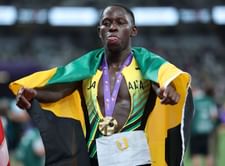
The Summer Olympics are the most anticipated event of its four-year cycle and with that it has garnered more anticipation than ever as the next edition is on the horizon.
The upcoming 2024 Summer Olympics will be held in Paris, France, from July 26 to August 11 and will feature 32 sports across 16 locations, totaling 329 events in nearly two weeks. Technically, the event will begin on July 24th with pool matches of football, rugby, Archery and handball.
Remarkably, the Olympics date back to the BC era, but the modern interation is around 200 years old, and so it follows a few ceremonial practices, like the opening, closing and medal ceremonies, which are traditional to be followed in each Olympics. Further, Paris hosted the Olympics earlier in 1900 and 1924, and it returned to Paris after 100 years in 2024 as a host.
Read More : Paris Olympics Schedule
Olympics Opening Ceremony 2024
The opening ceremony of the 2024 Paris Olympics will be held on July 26, in the center of Paris by the Seine River. For the first time in the Summer Games' history, the ceremony will take place outside of a stadium with the French president formally opening the games.
The opening ceremony will begin at 07:30 p.m. (CET). In keeping with nature, Paris 2024 selected this exact moment to coincide with the onset of dusk and the ceremony's narration, providing a beautiful event for both onlookers and television viewers, during the day and at night.
Read More: How many times has Paris hosted the Olympics?
The opening ceremony of the 2024 Paris Olympics will feature the following:
Seine River Ceremony
Athletes will parade along the Seine, with each national team represented by a boat. Moreover, Television and streaming viewers will be able to witness the athletes up close due to the cameras installed on these boats.
The 10,500 participants will make their way through the heart of Paris, which serves as the Games' main arena and where, over the course of the next 16 days, these athletes will compete. After a 6-kilometer course, the parade will culminate in front of the Trocadéro, the site of the last shows and the remaining Olympic protocol.
Know More : How many countries will participate in Paris Olympics?
Free Admission
The biggest opening ceremony in Olympic history will take place in Paris in 2024, since visitors from all over France and the world, as well as locals of Paris, are welcome to attend free of charge. It is the first to have a ceremony that is free for the majority of attendees and open to the crowd.
Fans can enter the upper quays without a ticket; however, they must purchase one in order to enter the lower quays, which run from the Austerlitz bridge to the Iéna bridge. Further, owing to 80 enormous screens and well-placed speakers, everyone present, near or far, can watch it.
Read more about Olympic tickets.
The Olympic ‘Parade of Nations Route
The river parade, which is the most important part of the Olympics opening ceremony, will travel 6 kilometers along the Seine from east to west. The parade will start at the Austerlitz bridge next to the Jardin des Plantes and travel around the Île Saint Louis and the Île de la Cité, the two islands in the middle of the city, passing under a number of bridges and entrances.
The march will halt at the Iéna Bridge prior to the Jardins du Trocadéro, giving athletes on board the parade boats a view of several of the official Games venues, such as Parc Urbain La Concorde, the Esplanade des Invalides, the Grand Palais, and so on.
Know More : List of Olympic Games host cities
FAQ's On Olympics Opening Ceremony
A. The Paris olympic opening ceremony 2024 will begin at 07:30 p.m. (CET).
A. The opening ceremony of the Olympics is the official opening of the 2024 Olympics held at the Seine River in Paris, France.
A. Yes, the 2024 Paris Olympics opening ceremony is free to attend. However, the lower quays must be purchased to access them.
A. The opening and closing ceremonies, as well as a few medal ceremonies and highlights, will be broadcast live on the NBC Olympics website.
A. Olympic Opening Ceremony emphasises cultural diversity and encourages international harmony, uniting nations worldwide.









